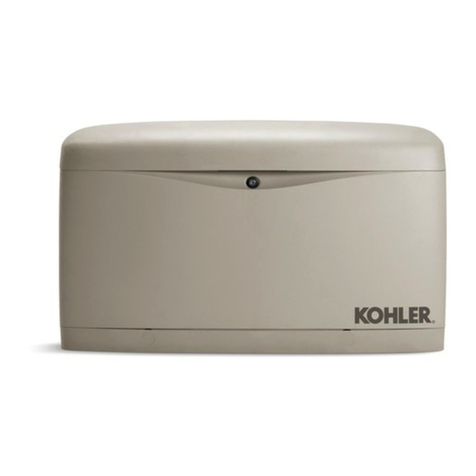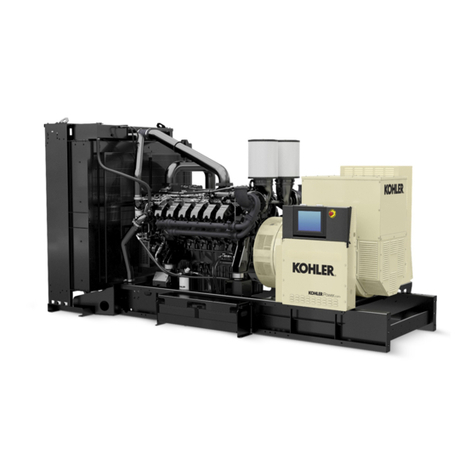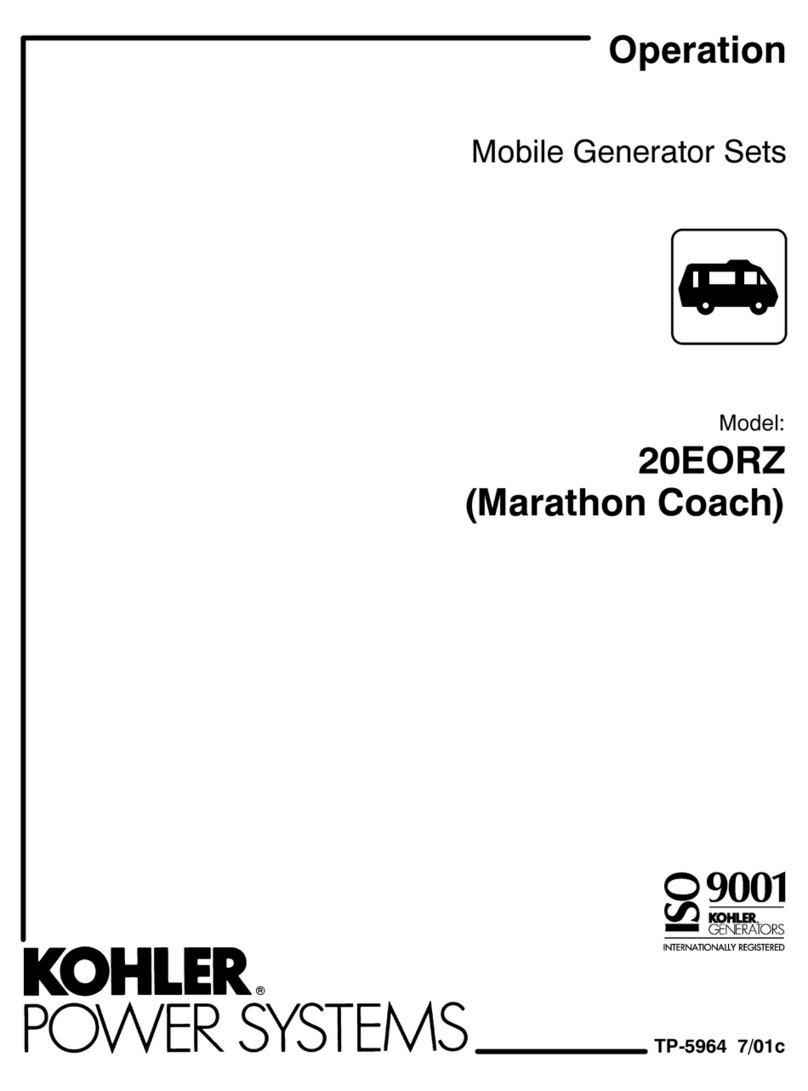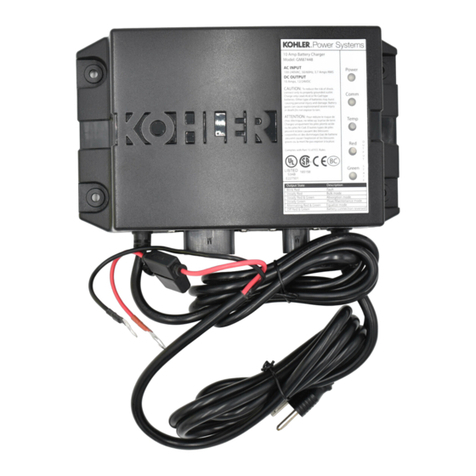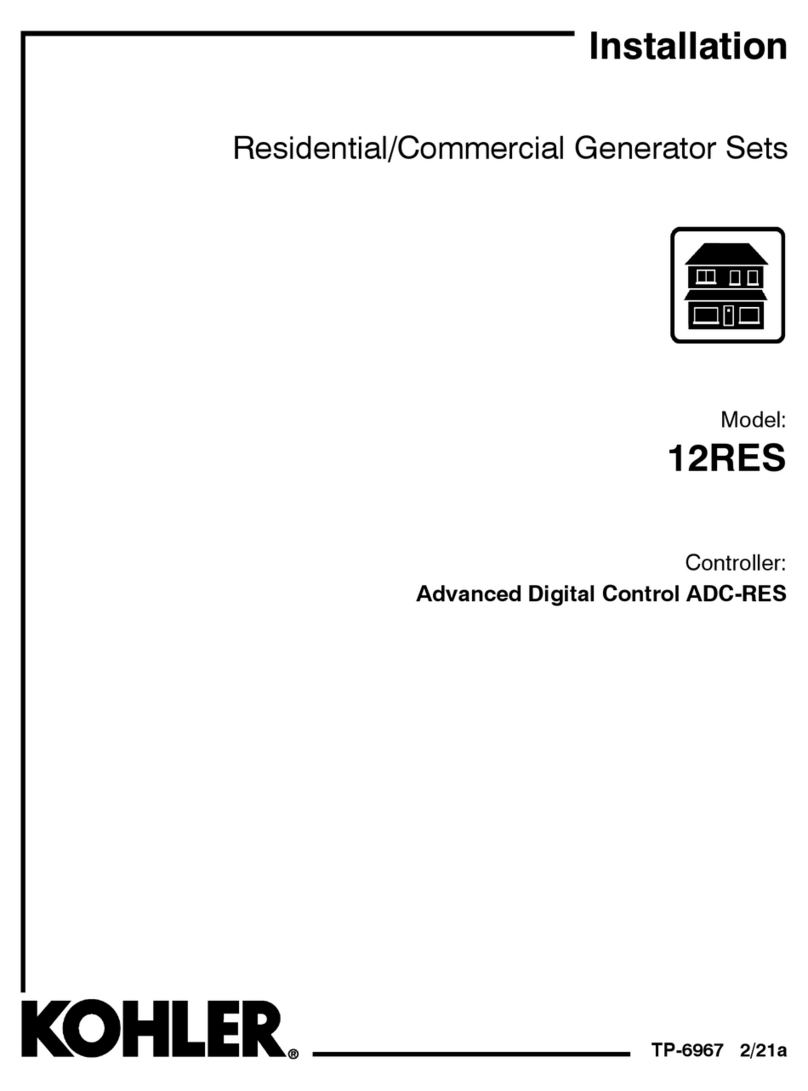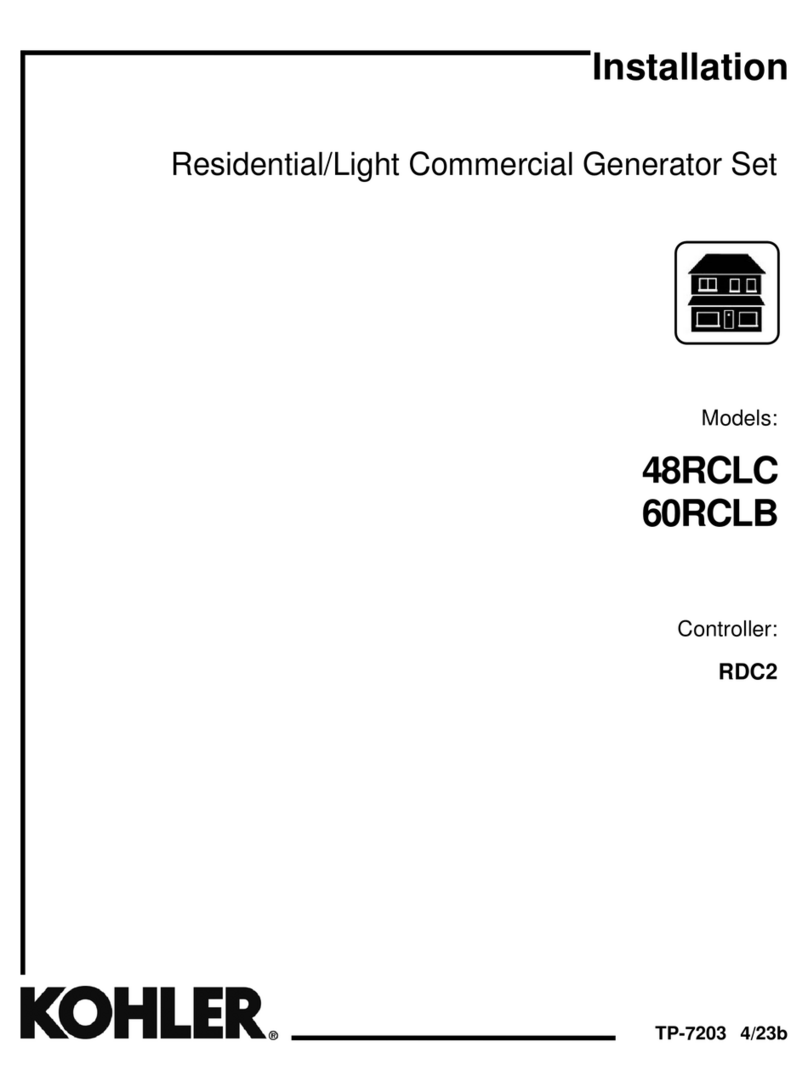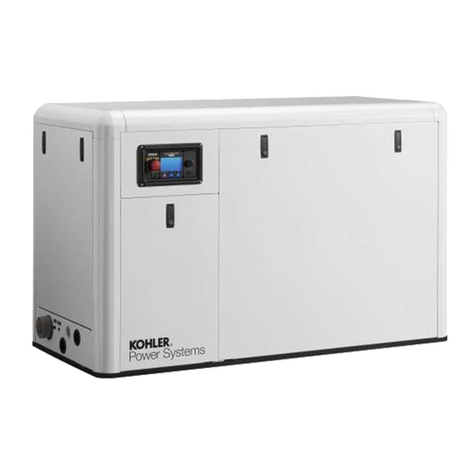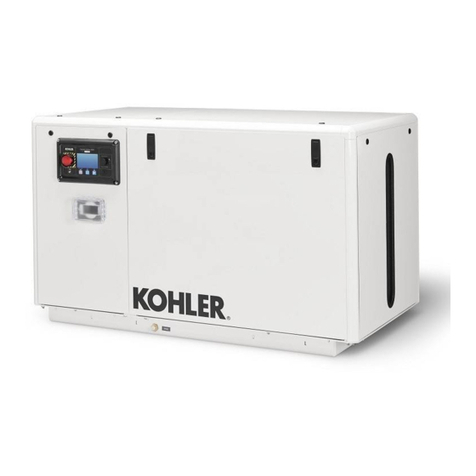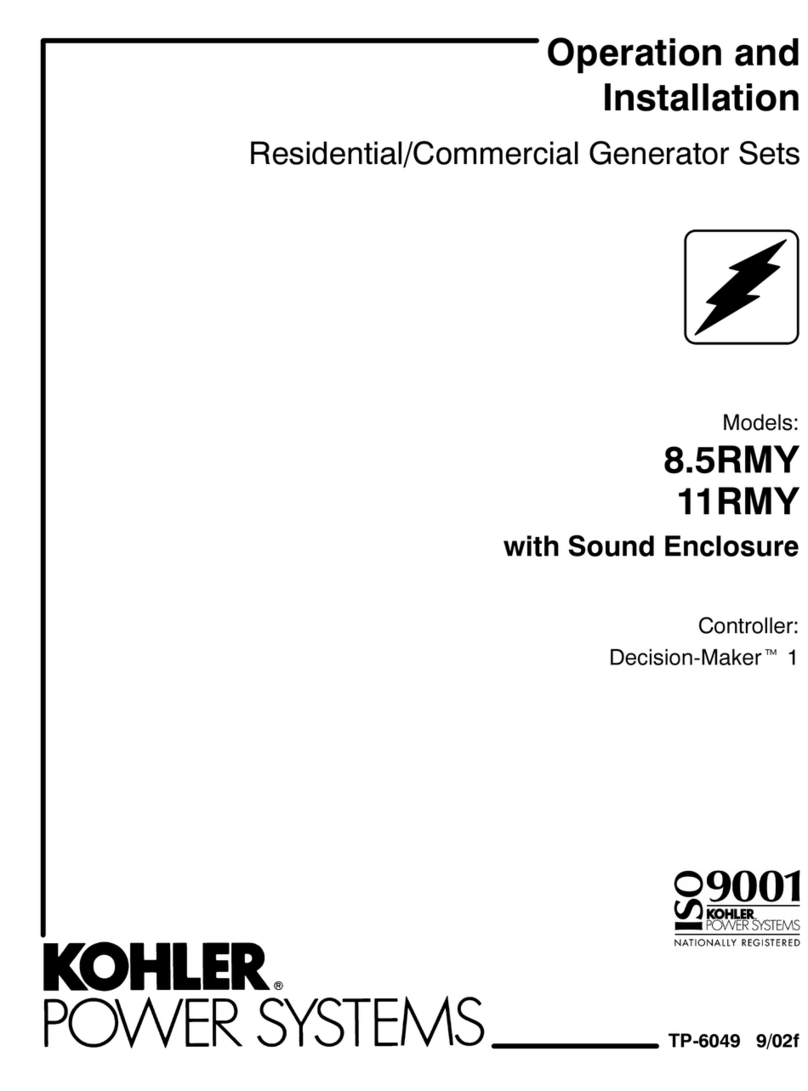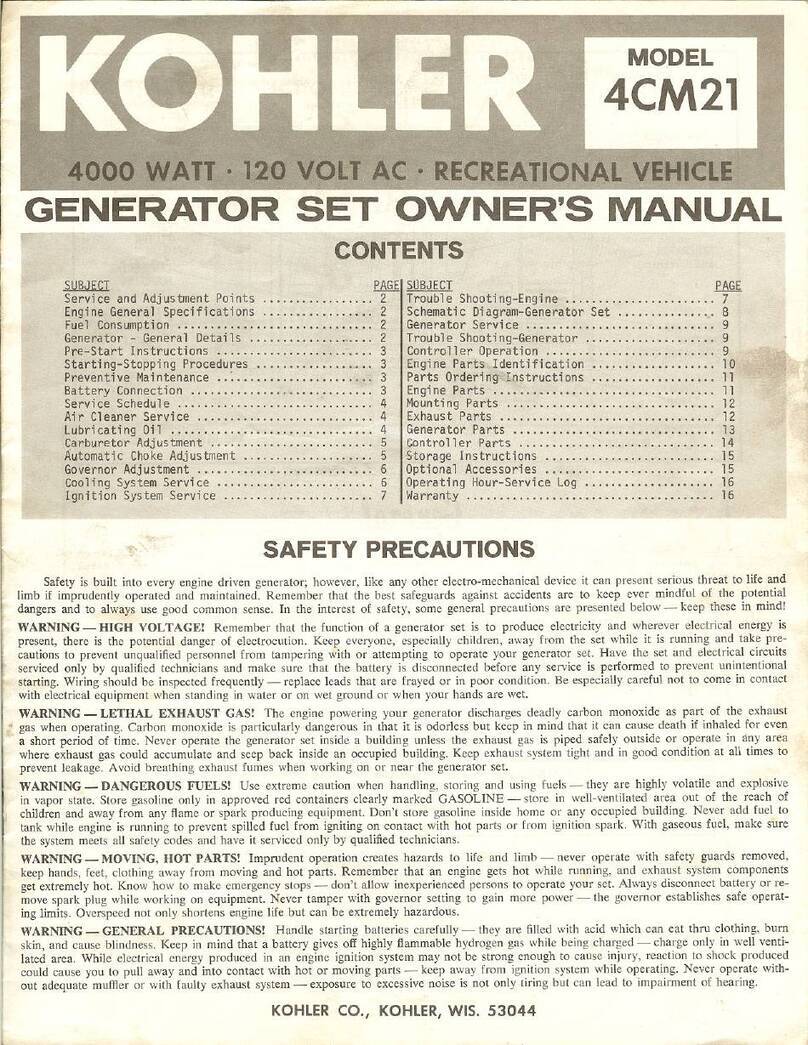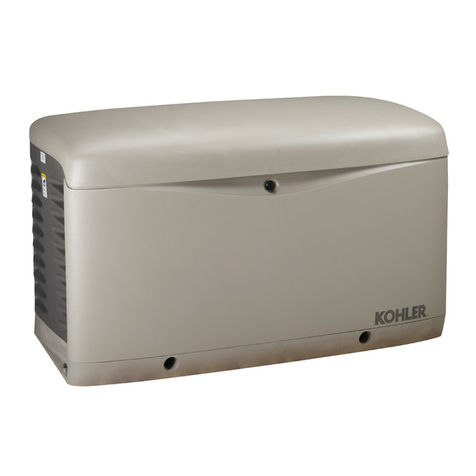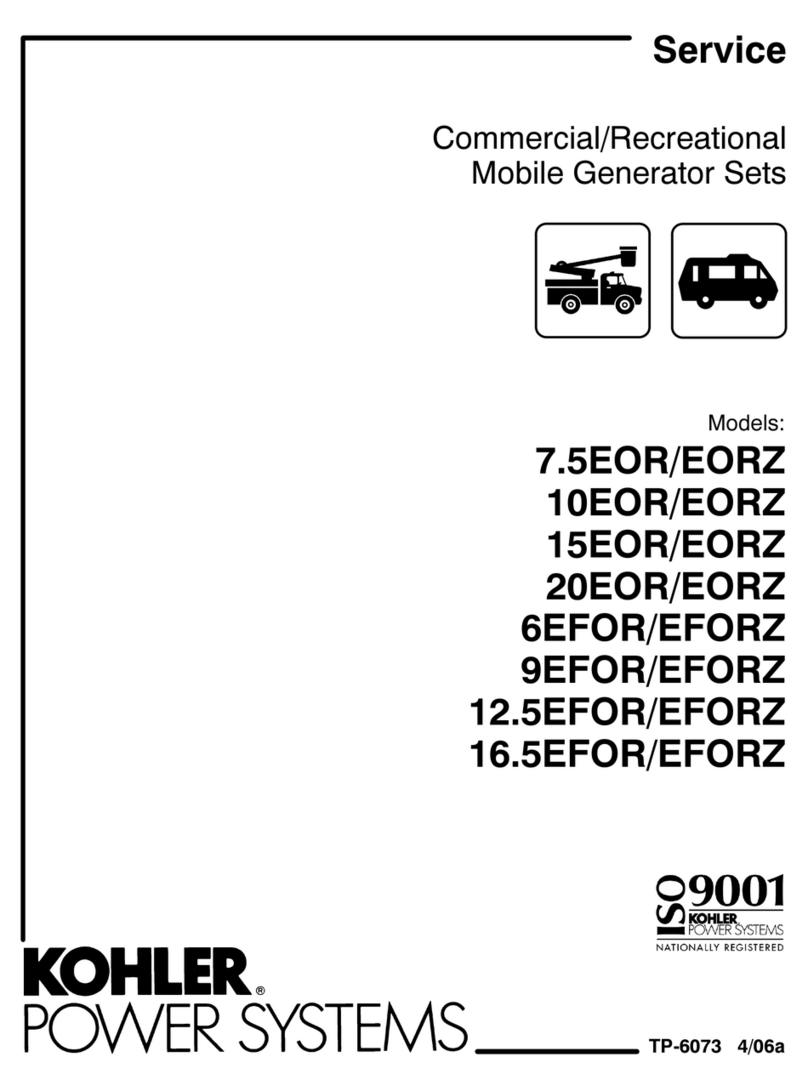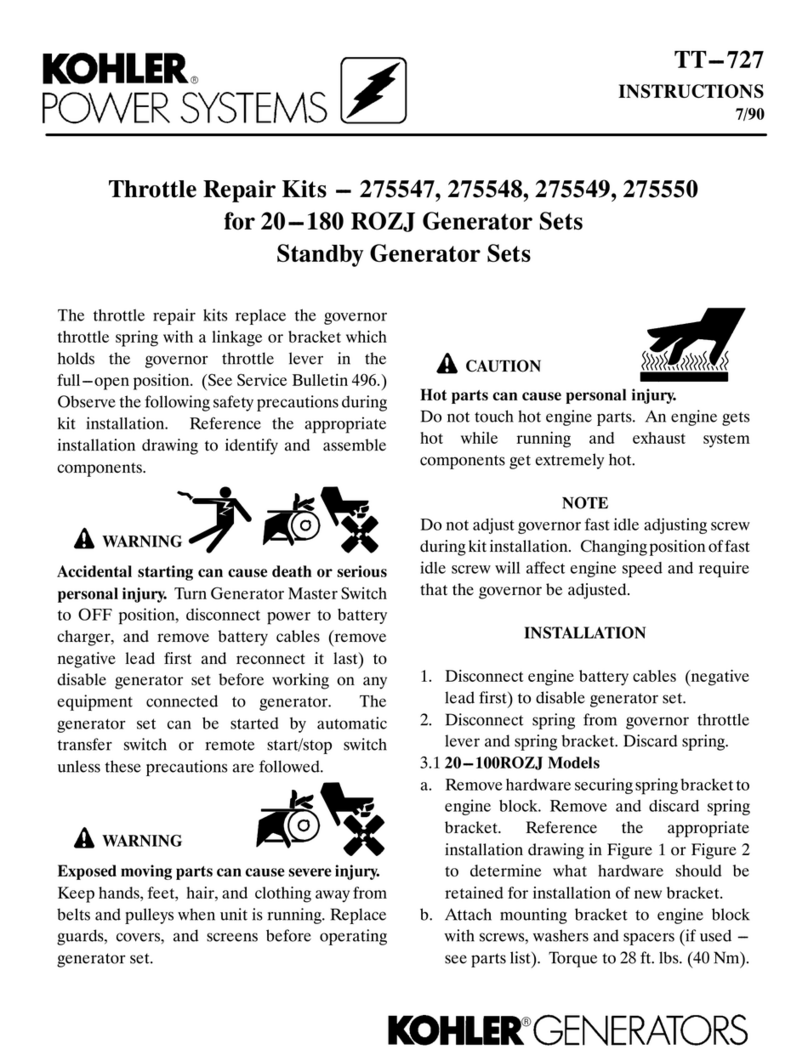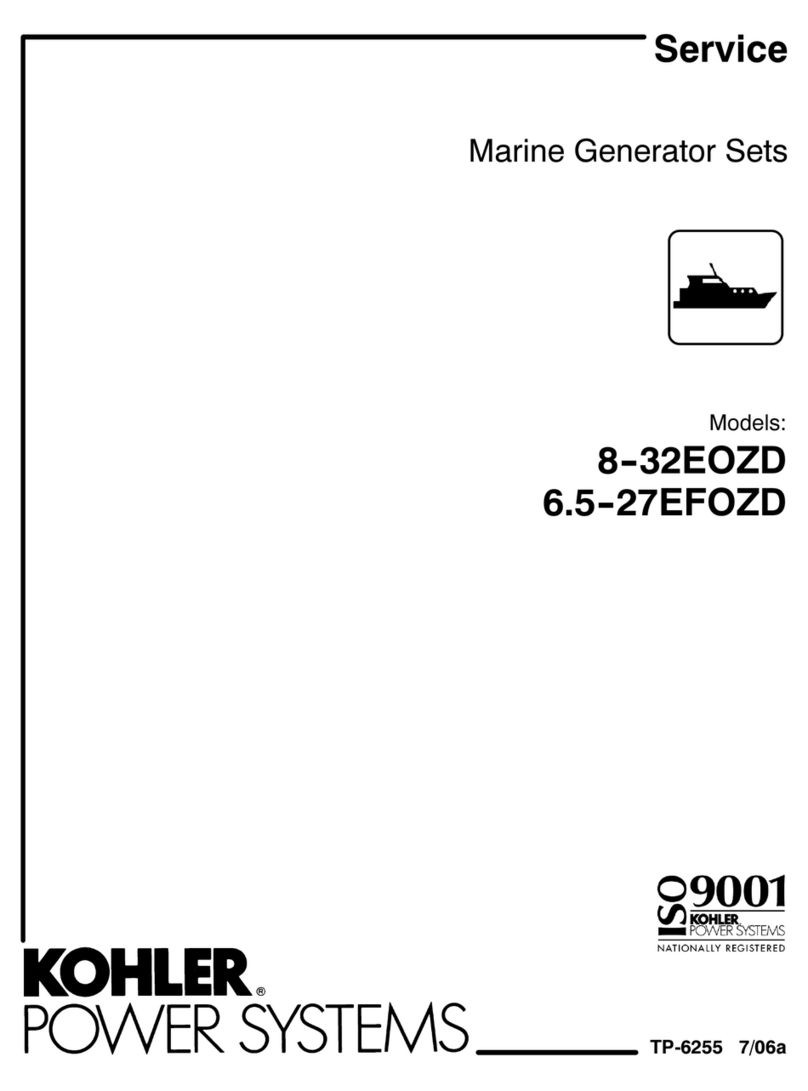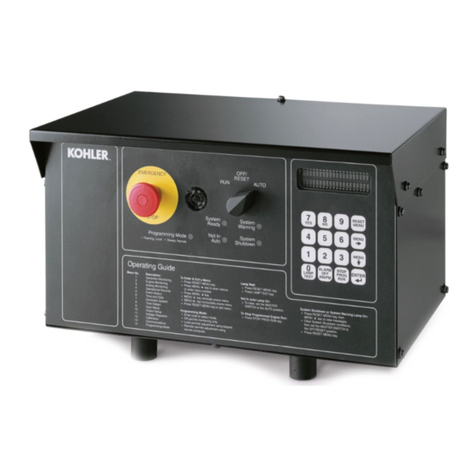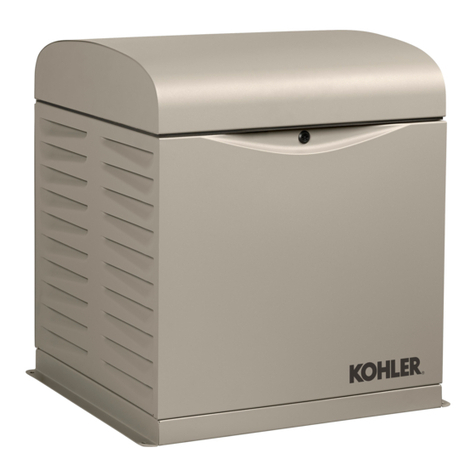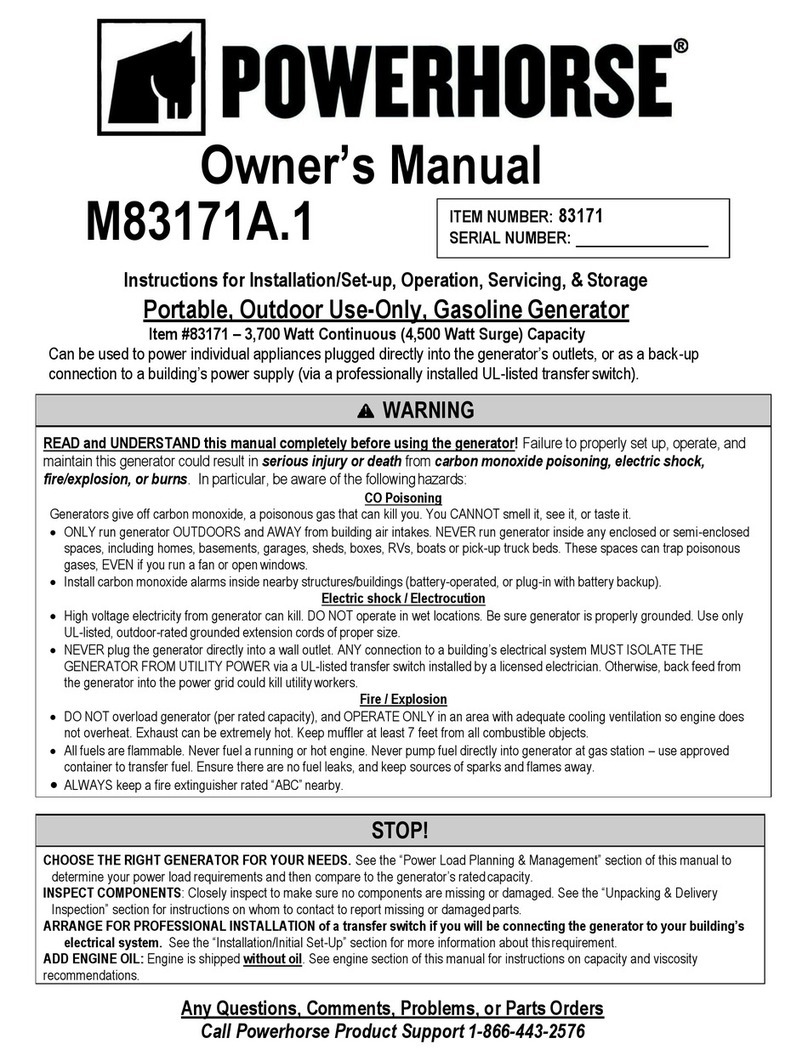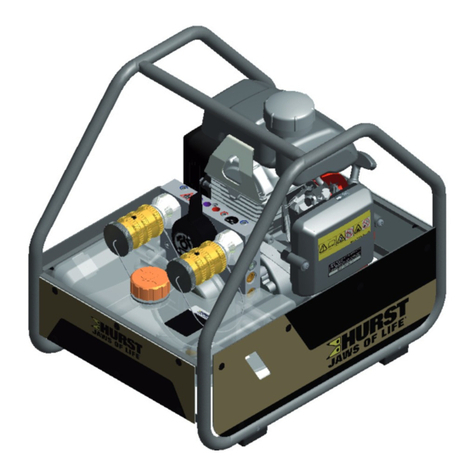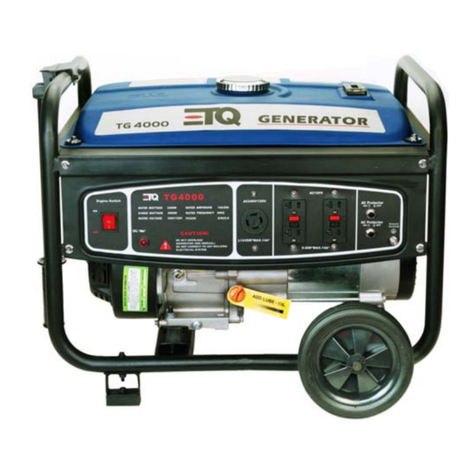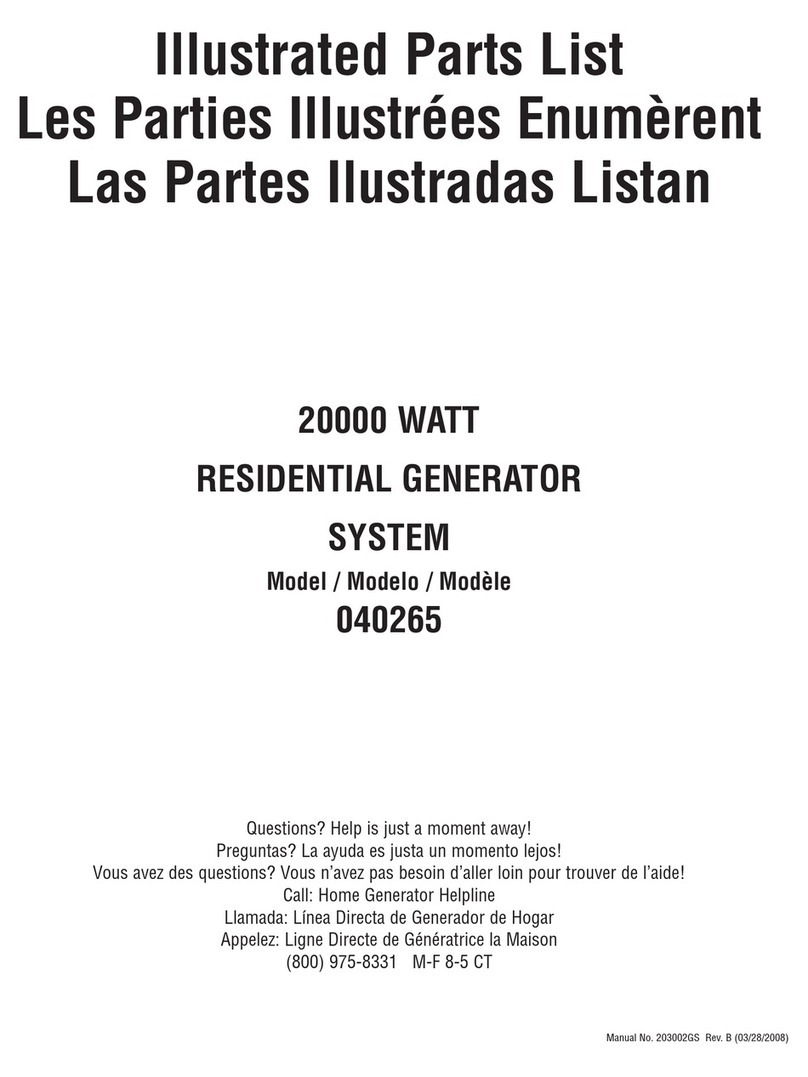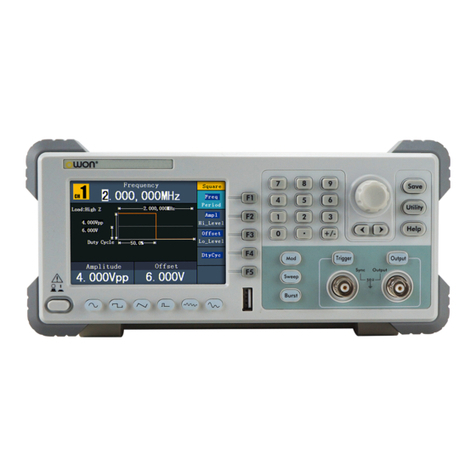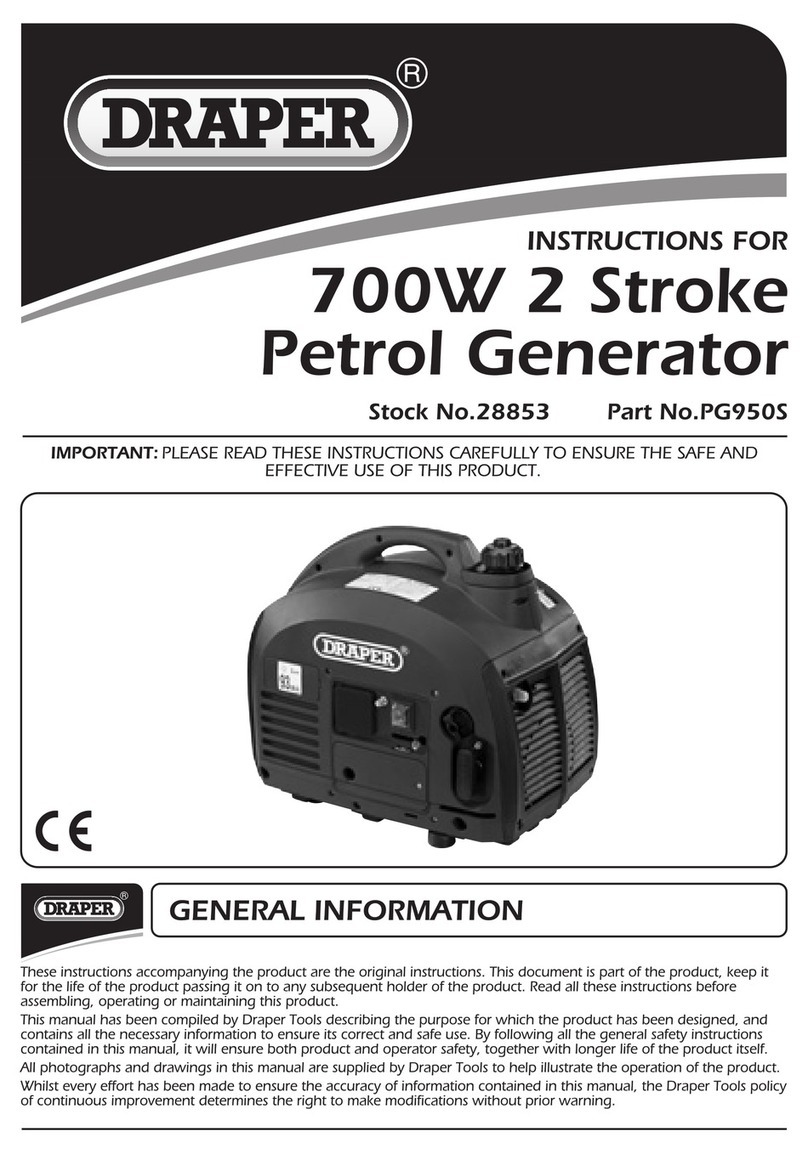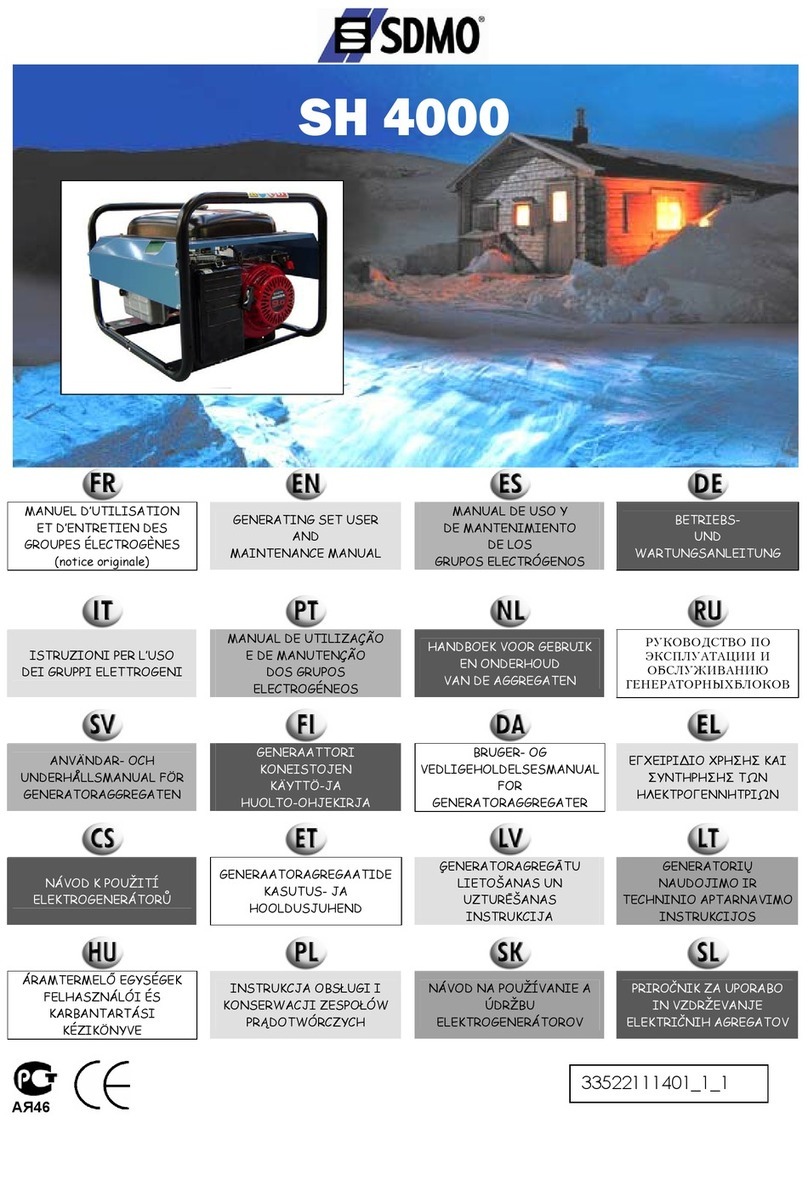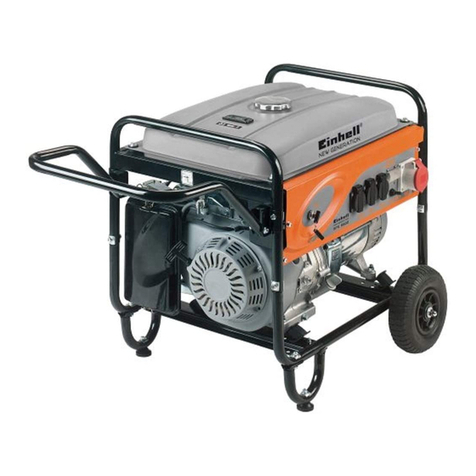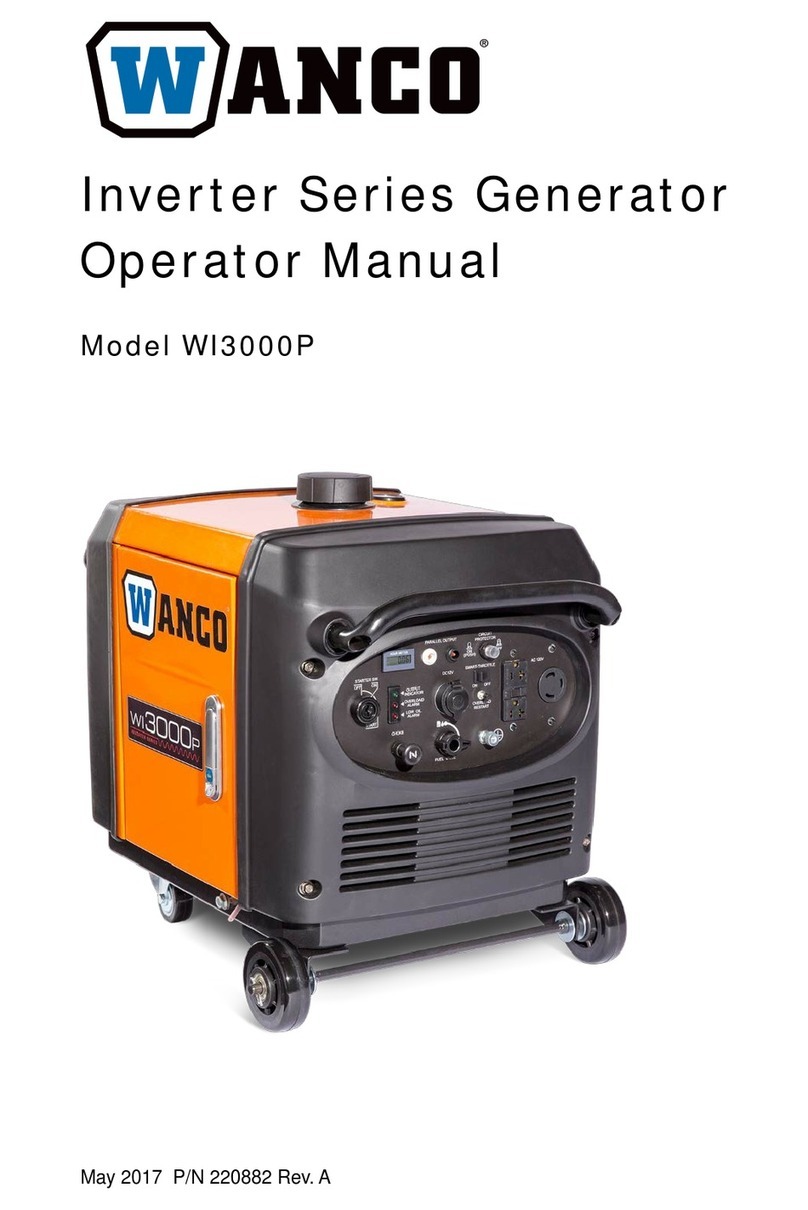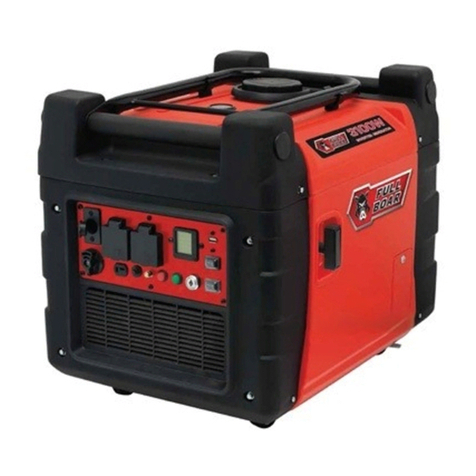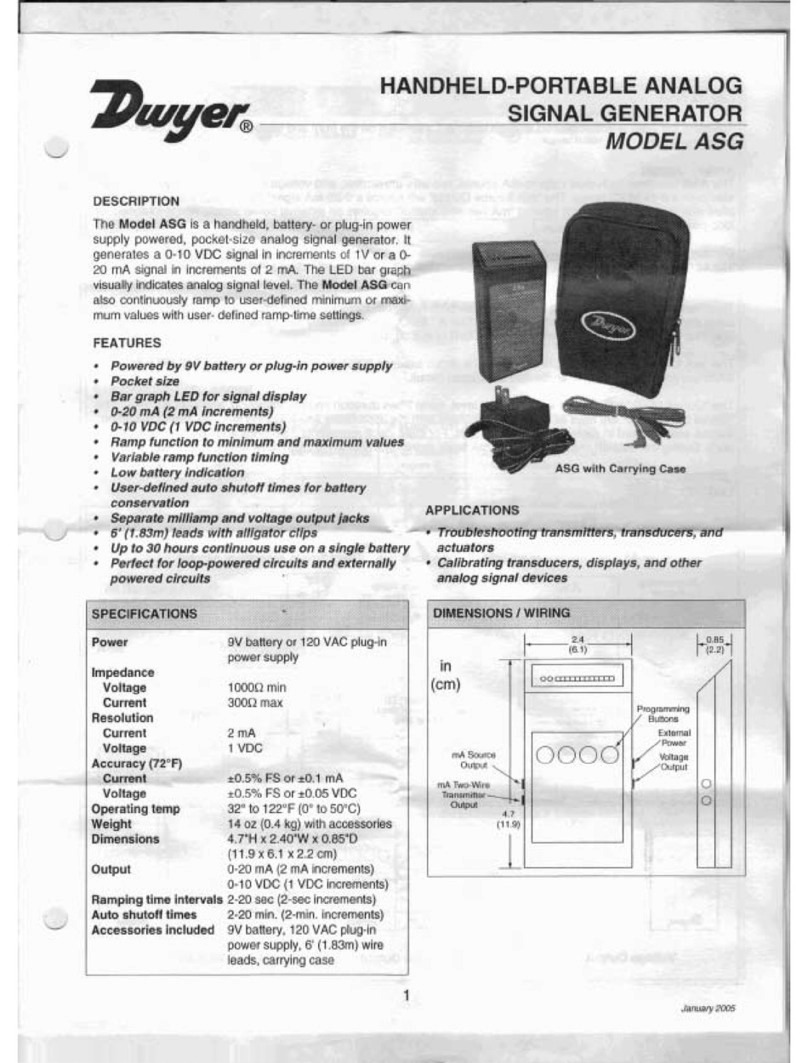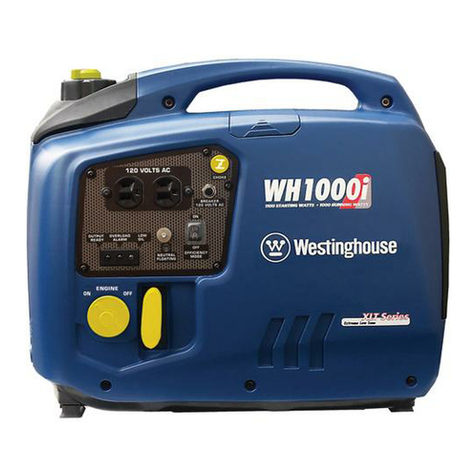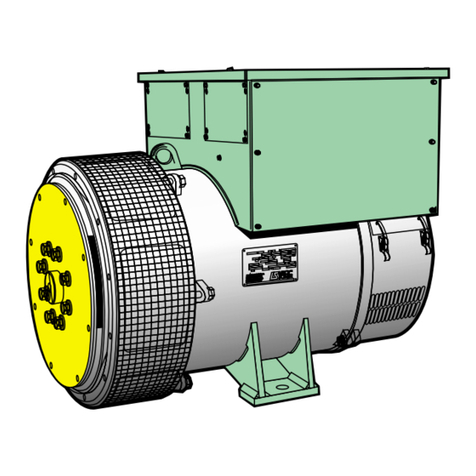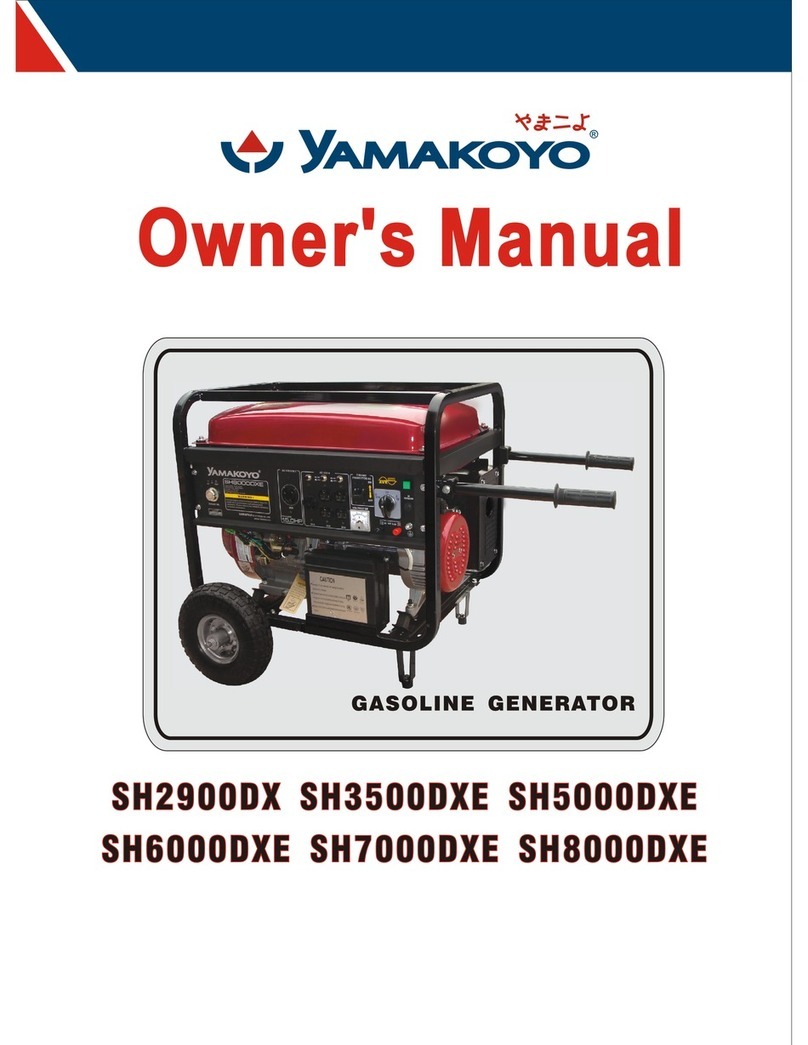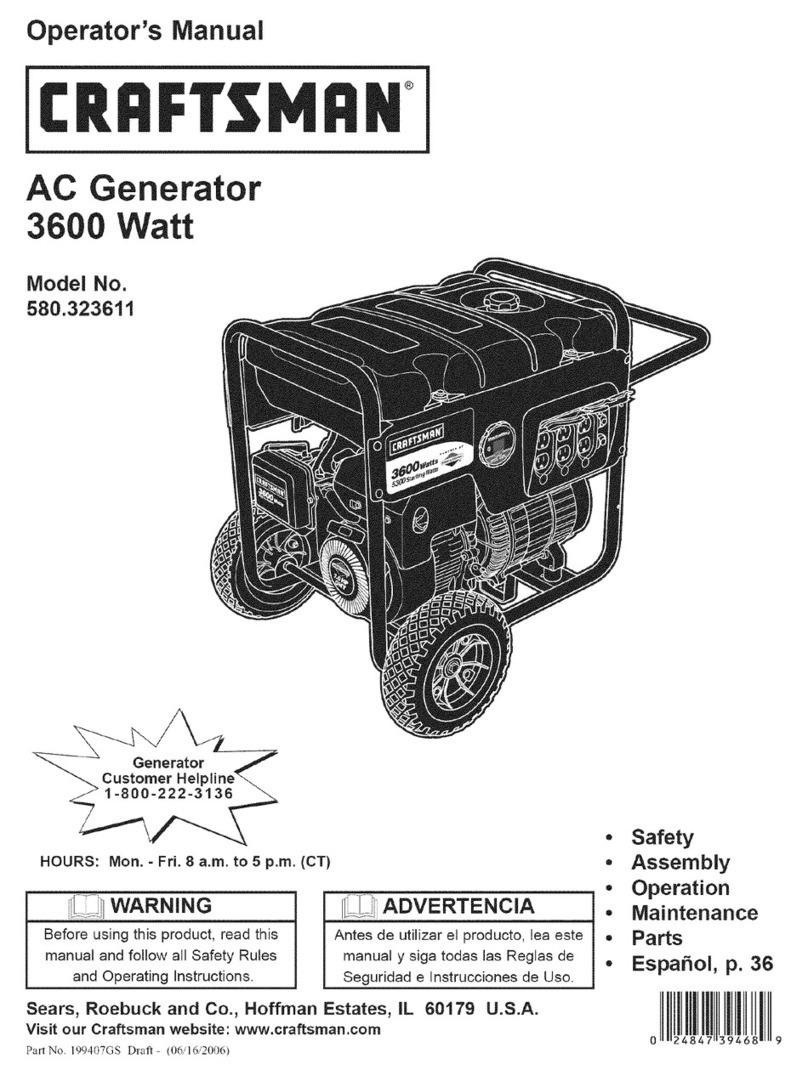
TP-6609 6/08 7Safety Precautions and Instructions
Used engine oil. Contact with used
engine oil may cause severe skin
irritation. Repeated and prolonged
skin exposure may have other
health risks. Used engine oil is a
suspected carcinogen. Avoid contact
with skin. Thoroughly wash your hands
and nails with soap and water shortly
after handling used engine oil. Wash or
dispose of clothing or rags containing
used engine oil. Dispose of used
engine oil in a responsible manner.
Contact your local recycling center for
disposal information and locations.
Fire-damaged or burned O-rings
may cause the formation of
hydrofluoric acid. Contact with
hydrofluoric acid may cause severe
skin irritation and chemical burns.
O-rings and other fluoroelastomer
seals exposed to fire or temperatures
above 316_C (600_F) (i.e., during
welding) may decompose forming
hydrofluoric acid. Avoid inhalation or
skin contact. Do not incinerate O-rings.
Dispose of O-ring waste material in a
responsible manner.
Exhaust System
Carbon monoxide.
Can cause severe nausea,
fainting, or death.
The exhaust system must be
leakproof and routinely inspected.
WARNING
Generator set operation. Carbon
monoxide can cause severe nausea,
fainting, or death. Carbon monoxide
is an odorless, colorless, tasteless,
nonirritating gas that can cause death if
inhaled for even a short time. Avoid
breathing exhaust fumes when working
on or near the generator set. Never
operate the generator set inside a
building unless the exhaust gas is
piped safely outside. Never operate
the generator set where exhaust gas
could accumulate and seep back inside
a potentially occupied building.
Carbon monoxide symptoms.
Carbon monoxide can cause severe
nausea, fainting, or death. Carbon
monoxide is a poisonous gas present in
exhaust gases. Carbon monoxide is an
odorless, colorless, tasteless,
nonirritating gas that can cause death if
inhaled for even a short time. Carbon
monoxide poisoning symptoms include
but are not limited to the following:
DLight-headedness, dizziness
DPhysical fatigue, weakness in
joints and muscles
DSleepiness, mental fatigue,
inability to concentrate
or speak clearly, blurred vision
DStomachache, vomiting, nausea
If experiencing any of these symptoms
and carbon monoxide poisoning is
possible, seek fresh air immediately
and remain active. Do not sit, lie down,
or fall asleep. Alert others to the
possibility of carbon monoxide
poisoning. Seek medical attention if
the condition of affected persons does
not improve within minutes of breathing
fresh air.
Fuel System
Explosive fuel vapors.
Can cause severe injury or death.
Use extreme care when handling,
storing, and using fuels.
WARNING
Avoid high pressure fluids.
Can cause severe injury or death.
Do not work on high pressure fuel or
hydraulic systems without
protective equipment to protect
hands, eyes, and body. Avoid the
hazard by relieving pressure before
disconnecting fuel injection
pressure lines. Search for leaks
using a piece of cardboard. Always
protect hands, eyes, and body from
high pressure fluids. If an accident
occurs, seek medical attention
immediately.
WARNING
The fuel system. Explosive fuel
vapors can cause severe injury or
death. Vaporized fuels are highly
explosive. Use extreme care when
handling and storing fuels. Store fuels
inawell-ventilatedareaawayfrom
spark-producing equipment and out of
the reach of children. Never add fuel to
the tank while the engine is running
because spilled fuel may ignite on
contact with hot parts or from sparks.
Do not smoke or permit flames or
sparks to occur near sources of spilled
fuel or fuel vapors. Keep the fuel lines
and connections tight and in good
condition. Do not replace flexible fuel
lines with rigid lines. Use flexible
sections to avoid fuel line breakage
caused by vibration. Do not operate the
generator set in the presence of fuel
leaks, fuel accumulation, or sparks.
Repair fuel systems before resuming
generator set operation.
Fuel tanks. Explosive fuel vapors
can cause severe injury or death.
Gasoline and other volatile fuels stored
in day tanks or subbase fuel tanks can
cause an explosion. Store only diesel
fuel in tanks.
Draining the fuel system. Explosive
fuel vapors can cause severe injury
or death. Spilled fuel can cause an
explosion. Use a container to catch fuel
when draining the fuel system. Wipe up
spilled fuel after draining the system.
